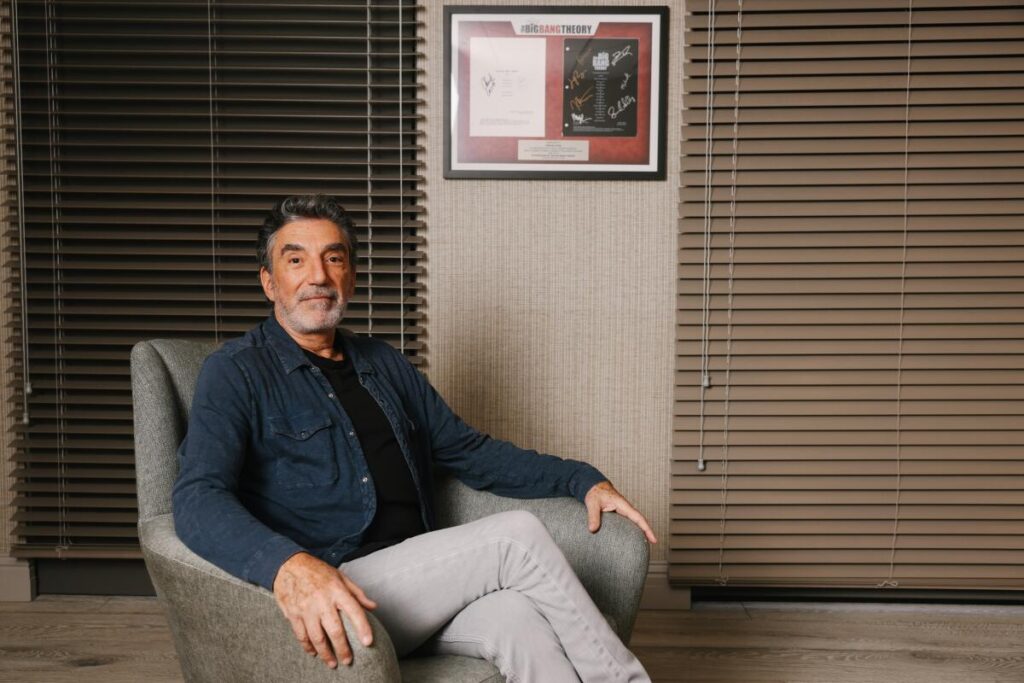Veteran TV producer Chuck Lorre is the co-creator of the new Max comedy “Bookie” — his third for a streaming platform. “If somebody’s watching Episode 4, you know they watched [Episodes] 1, 2 and 3. You don’t know that in network television.”
(Dania Maxwell / Los Angeles Times)
“Bookie” is Lorre’s third series on a streaming platform, following “Disjointed” and “The Kominsky Method,” both of which were for Netflix. And, like “The Kominsky Method,” it’s shot in the single-camera format, with no live studio audience.
“I was very suspicious early on about the idea of bingeing. But what I didn’t know and I discovered in talking to people who had watched the show is they would watch three, four episodes at a time. If somebody’s watching Episode 4, you know they watched [Episodes] 1, 2 and 3. You don’t know that in network television. On any given night of a network comedy, you don’t know if they were there last week and if those stories connect; the best you can do is ‘previously on.’”
For a veteran writer and producer who came up in the broadcast network system, adapting to the streaming era and embracing single-camera comedies has been a revelatory shift to the routine he had grown accustomed to for so long.
“To my horror, my first drafts as a writer were not perfect. And in a writers’ room, I saw them get way better. I didn’t want it to be true. But a group of great comedy writers tearing my script apart made it much, much better. That was a lesson in humility. Fast forward, I did ‘The Kominsky Method’ — I wrote pretty much all of them myself. I wanted to see if I could, because in the beginning, when you’re trying to break in, you write by yourself. And then you spend 25 years in a room with other people and suddenly there has to be a consensus; people debate: This is good, this is bad. It’s this cauldron of opinions. And yes, it makes it better, but it’s a different process.
“With ‘Kominsky,’ I wanted to see if I could still sit in a room by myself, because I’d been sitting in a room with other people for 30 years. And I really loved it. Writing, in any other world, is a solitary profession. Only in television, with a writers’ room, is it a group effort. I was on set all the time, every scene, every episode, making Alan Arkin and Michael Douglas absolutely crazy because I kept running over to change things. I can remember having the headphones on and as I’m walking toward the set, hearing Alan say to Michael, ‘Oh, God. Here he comes.’ And I’m like, ‘No, no, no. I really can make the scene better.’ Why would you waste the opportunity? If I think I can make it better, why wouldn’t I do that? That’s the four-camera education, it doesn’t leave you.
“When you don’t have that audience to tell you, ‘You failed’ when you’re shooting single-camera — I did this on ‘Kominsky,’ and I did it on ‘Bookie’ — I’m there every second, and I’ll run over and ask the actors to make some changes. I don’t want to find out in the editing bay that the scene doesn’t work out. I don’t want to edit my way into success. I want to shoot successful comedy, then editing will be a plus to it. The magic of editing is a terrific thing, but it can’t replace the scene work.”

